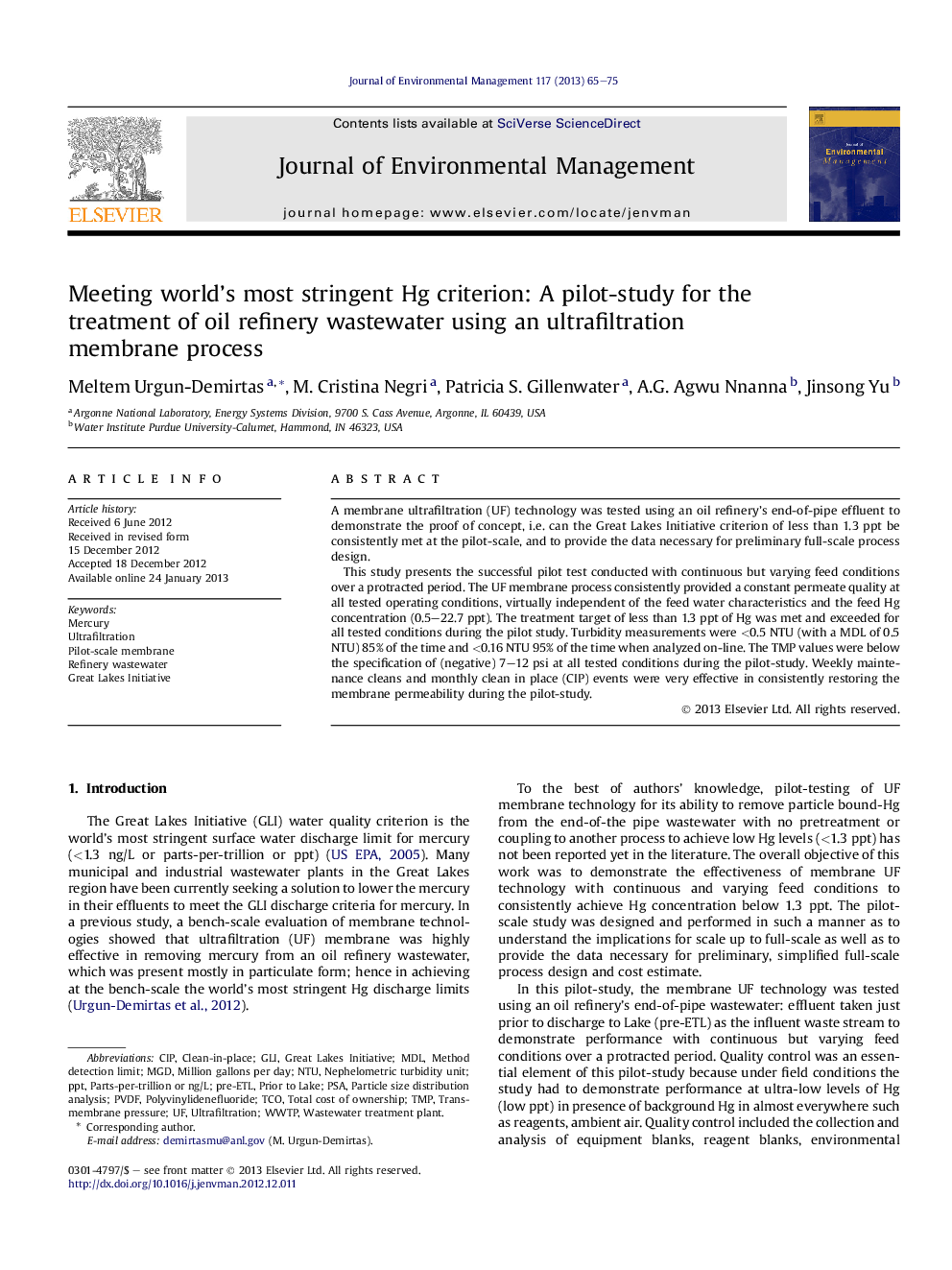| Article ID | Journal | Published Year | Pages | File Type |
|---|---|---|---|---|
| 1056302 | Journal of Environmental Management | 2013 | 11 Pages |
A membrane ultrafiltration (UF) technology was tested using an oil refinery's end-of-pipe effluent to demonstrate the proof of concept, i.e. can the Great Lakes Initiative criterion of less than 1.3 ppt be consistently met at the pilot-scale, and to provide the data necessary for preliminary full-scale process design.This study presents the successful pilot test conducted with continuous but varying feed conditions over a protracted period. The UF membrane process consistently provided a constant permeate quality at all tested operating conditions, virtually independent of the feed water characteristics and the feed Hg concentration (0.5–22.7 ppt). The treatment target of less than 1.3 ppt of Hg was met and exceeded for all tested conditions during the pilot study. Turbidity measurements were <0.5 NTU (with a MDL of 0.5 NTU) 85% of the time and <0.16 NTU 95% of the time when analyzed on-line. The TMP values were below the specification of (negative) 7–12 psi at all tested conditions during the pilot-study. Weekly maintenance cleans and monthly clean in place (CIP) events were very effective in consistently restoring the membrane permeability during the pilot-study.
► The ultrafiltration membrane process was evaluated to treat an oil refinery effluent. ► The process performance was tested with continuous but varying feed conditions. ► The water quality goal (Hg < 1.3 ng/L) was exceeded for all tested conditions. ► The pilot-study provided useful insights for implementing the full-scale process.
